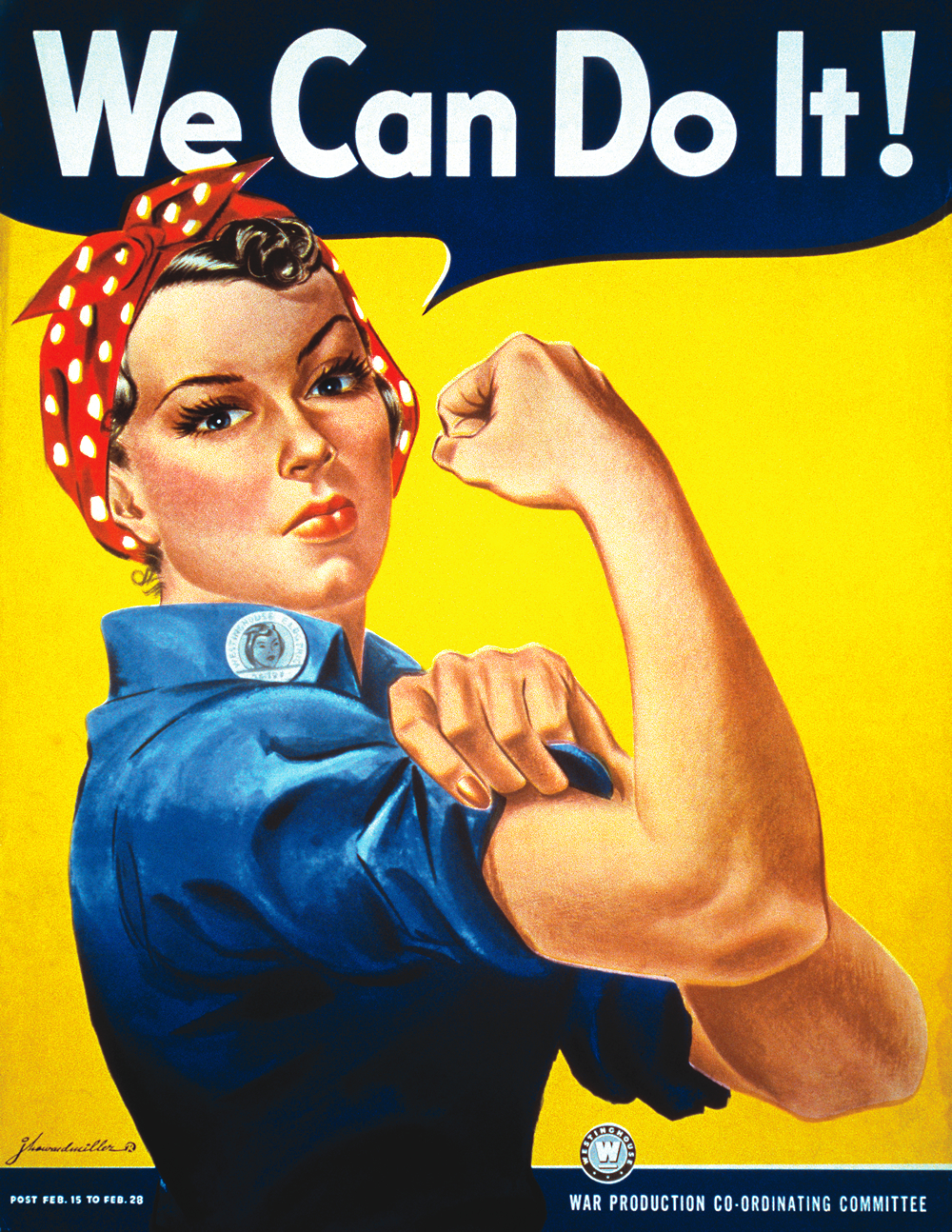I wanted to focus on the topic that came up briefly during our lecture - the duality of the social worker's role in our society or micro verses macro. I think conversation on this topic is pertinent for all of us during this phase in our career. Many of us are evaluating our personal strengths and weaknesses as we make decisions on field placement and personal paths of employment.
When it was brought up in class my mind jumped to the debate of "working mothers" vs. "stay-at home moms". The debate has been going on for the last few decades because of the rise of women in the workplace. As we know from the "Rosie the Riveter" card placed on the timeline, women filled the shoes of their fighting male counterparts in factories during WWII. After the war the soldiers returned home and so did the women; where they stayed for sometime. The 1960's gave way to much social change and that paved the way for the modern women's right movement of the 1970's. This gave more opportunity for women to pursue education and careers of their own. Along the way, we saw as the economic shift that changed from a family being able to survive on a single incomes to many families needing a second income to make ends meet. This faced many more moms with the challenge of staying home with the children or joining the work force...
There is no right answer - we know that BUT there is a whole industry built around "pitting one side against the other". Many would argue that media, mainly magazines play to the insecurities women on both sides. This influence makes one side feel "right" and the other feel "wrong" - instead of honoring both roles and realizing the strengths of one only make the other more valued.
http://www.parenting.com/article/the-workstay-at-home-debate
OK, now to bridge the two thoughts....
When we look at the debate over social work - MICRO vs. MACRO we can see how the STAY-AT-HOME MOM might be comparable to the MICRO LEVEL WORKERS as opposed to the WORKING MOM drawling a parallel to the MACRO LEVEL WORKER.
http://www.acosa.org/joomla/pdf/Rothman_Mizrahi.pdf
Now some questions:
What is the value of one role as opposed to the other,?
Could we have one without the other?
Does societal changes influence one role or the other and their importance?
How does one's own personal life experience influence their choice in which role to assume?
What personal traits make a person better suited for one role or the other?
What personal values/beliefs influence ones choice?
How can we assume both roles without sacrifice?
The dramatic visual we were posed with last night in class, about babies in a river gave us a lot of food for thought...
I think in today's modern society we are more blessed than ever. When we sit on the riverbank we are not isolated. We have a smart phone in our pocket - we have social media - ways to voice issues and concerns and yell for help, we have a contact list a mile long and can call for back up with we can swim any more, we can access google maps and find out where the babies are being dumped in at, we have ways to contact the best net makers on the planet that will gladly support our cause and make us a world class net to catch many more babies.
We have the whole world at our finger tips and with the right knowledge we can utilize that to join the forces of MICRO and MACRO together.
Just like all moms have the same goal of raising great kids - all those who enter into social work need to focus on the one goal of making a better world. Some in social work have a strong skill set that make them best suited for MICRO work and some have vision and imagination that make them better MACRO. These two sides can and should work together to initiate real change.
....If we look to the biblical story of Moses we see the last famous baby to come floating down a river ended up liberating the Israelite people from oppressive Egyptian slavery. Had the pharaoh's daughter went to see who put him in the river as opposes to getting him out the whole course of history would be changed!
Her work on the micro level gave Moses the platform to work on the macro!


